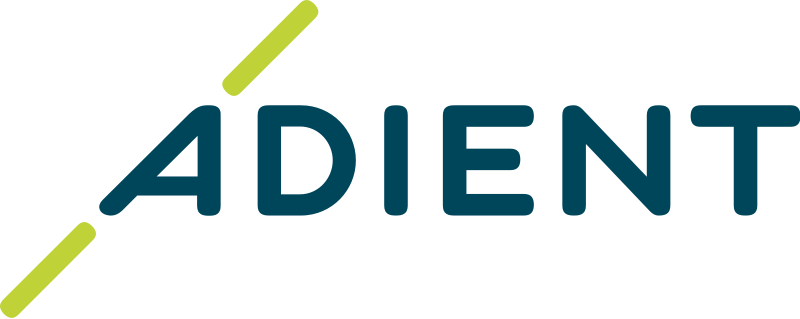Adient is the global leader in the $60 billion automotive seating market, with approximately 75,000 employees in 230 locations across 33 countries. With $20 billion in consolidated annual revenues, Adient delivers 25 million seating systems used on more than 360 vehicle nameplates around the globe.
At-a-Glance
Adient saw an opportunity to enhance its operational efficiency and foster innovation by delivering information services from a single, central point. To enable it to manage the new environment with a lean team, the company selected SUSE Linux Enterprise Server as its corporate standard for Linux. Combined with automation from SUSE Manager, the company can now deploy new Linux-based services 70% faster while keeping headcount flat.
Die Herausforderung
To strengthen its market-leading position, Adient aims to foster innovation within a lean, efficient operating model. IT plays an important role in delivering these capabilities. The company relies on an integrated suite of SAP business systems to steer its global business, and computer-aided design and product lifecycle management tools to support its engineering processes.
After spinning off from Johnson Controls as an independent business, Adient recognized an opportunity to enhance its approach to IT service delivery.
Daniel Kirkwood, director global hosting infrastructure and operations at Adient, explains: “Our goal is to enable our business users — including engineering, customer and finance teams — to move fast. In the past, we provided an internal marketplace where the business could purchase the resources they needed. However, this decentralized approach presented many challenges.
“Because we were unable to advise users on their deployments, many parts of the business ended up significantly over- or under-sizing their environments. This reduced efficiency and drove up our operational costs. Combined with the legacy platforms we inherited from Johnson Controls, managing our environment effectively was an extremely difficult task.”
Adient was confident that a standardized approach to provisioning and managing IT platforms would enable it to achieve its infrastructure goals. The company formed a central group that would take on responsibility for infrastructure and define new corporate standards.
“One of the key reasons we decided to standardize on SUSE Linux Enterprise Server is the level of experience, comfort and confidence our support engineers have with the SUSE distribution, company and culture as a whole.”
SUSE Lösung
Adient selected SUSE Linux Enterprise Server (SLES) as its corporate standard for Linux. Today, the company runs its key business systems — including SAP HANA — on the platform.
“One of the key reasons we decided to standardize on SLES is the level of experience, comfort and confidence our support engineers have with the SUSE distribution, company and culture as a whole,” explains Kirkwood. “Time and again, SUSE has demonstrated its support for the open source community, and their forward-thinking attitude shines through in the quality of their platform and support.”
To reduce the manual effort required to manage and maintain the new environments, the company uses SUSE Manager to automate key monitoring and maintenance tasks.
Kirkwood adds: “The capabilities of SUSE Manager also played an important role in our decision-making process. We have one application running on Red Hat Enterprise Linux, and because SUSE Manager is a distribution-agnostic solution, we’ve brought that environment into the same best-practice management regime we follow for the rest of our estate.”
Gradually, Adient has transitioned its global teams to its new, centralized platform. By waiting for natural points in the lifecycle of each platform before migrating, the company has streamlined the process and minimized the operational impact.
“Throughout the rollout of SLES, our Premium Support Services contract meant that our team could depend on expert, dedicated support through a single premium engineer at SUSE,” says Kirkwood. “We have an excellent rapport with the whole SUSE team, and never hesitate to pick up the phone when we need help.”
Die Ergebnisse
Adient has transformed its approach to infrastructure — enabling it to deliver rapid access to the services that business users need to drive innovation. The company’s infrastructure is completely virtualized — using both Microsoft Hyper-V and VMware ESXi hypervisors — with approximately 5,000 virtual machines running across 2,000 physical servers globally.
“We now offer an internal catalog detailing every resource we offer,” continues Kirkwood. “Because we are now deploying on SLES in a standardized, virtualized environment, we can roll out new platforms 70% faster.”
With SUSE Manager driving its management workflows, Adient can keep a fast-growing environment secure with a lean headcount.
“Working in IT, especially in the automotive industry, means finding effective ways to do more with less,” explains Kirkwood. “Although our environment has grown by around 25% over the last two years, using SUSE Manager to automate repetitive tasks like security patching has helped us avoid the need to recruit new engineers. The SUSE solution also offers us granular insights into vulnerabilities — helping us prioritize our remediation work to keep our environment protected.”
Kirkwood concludes: “SUSE’s willingness to listen to our needs and go the extra mile to deliver sets them apart from other vendors we’ve worked with. Together, we’ve shaped a lean, efficient IT platform that empowers our people to innovate.”
